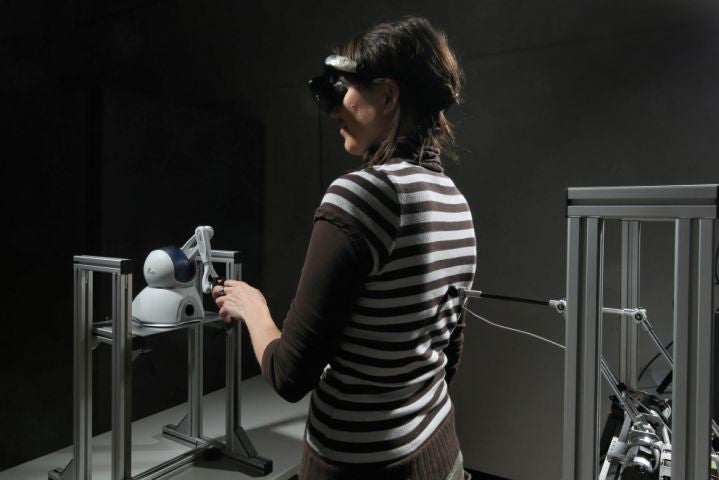How to make ghosts in the lab: scientists trick volunteers into reporting 'feelings of presence'
Scientists say the experiments show that when our bodily systems malfunction (either through disease or outside influence) the mind imagines apparitions

Your support helps us to tell the story
From reproductive rights to climate change to Big Tech, The Independent is on the ground when the story is developing. Whether it's investigating the financials of Elon Musk's pro-Trump PAC or producing our latest documentary, 'The A Word', which shines a light on the American women fighting for reproductive rights, we know how important it is to parse out the facts from the messaging.
At such a critical moment in US history, we need reporters on the ground. Your donation allows us to keep sending journalists to speak to both sides of the story.
The Independent is trusted by Americans across the entire political spectrum. And unlike many other quality news outlets, we choose not to lock Americans out of our reporting and analysis with paywalls. We believe quality journalism should be available to everyone, paid for by those who can afford it.
Your support makes all the difference.What’s the best way to prove ghost don’t exist? Make them in a lab of course! Or, at least, create the sort of mind-and-body confusion that leads people to believe that spirits and apparitions are in the room with them.
This is what a group of scientists from the Ecole Polytechnique Federale de Lausanne (EPFL) in Switzerland have done, with the help of some mechanical apparatus known as a ‘master-slave device’.
This consist of two jointed mechanical arms that move in tandem, with volunteers controlling one in front of them like an extra-long finger while a second (located behind them) pokes them in the back.
No, really – the thinking apparently being that if you have to do silly science to disprove silly beliefs then so be it.
With the volunteers blind-folded they begin to manipulate the ‘master’ arm in front, while the ‘slave’ arm behind begins to prod their back – but with a 500 millisecond delay.
The result? Some of the volunteers reported that they felt they were surrounded by ghostly presences that were touching them, with two of the twelve participants reportedly so disturbed by the feeling that they asked for the experiment to end.
“Our experiment induced the sensation of a foreign presence in the laboratory for the first time. It shows that it can arise under normal conditions, simply through conflicting sensory-motor signals,” said Professor Olaf Blanke.
“The robotic system mimics the sensations of some patients with mental disorders or of healthy individuals under extreme circumstances,” he added. “This confirms that it is caused by an altered perception of their own bodies in the brain.”
Dr Giulio Rognini, co-author of the study published in the journal Current Biology, said: “Our brain possesses several representations of our body in space. Under normal conditions, it is able to assemble a unified self-perception of the self from these representations.
“But when the system malfunctions because of disease - or, in this case, a robot - this can sometimes create a second representation of one’s own body, which is no longer perceived as ‘me’ but as someone else, a “presence”.”
Join our commenting forum
Join thought-provoking conversations, follow other Independent readers and see their replies
Comments